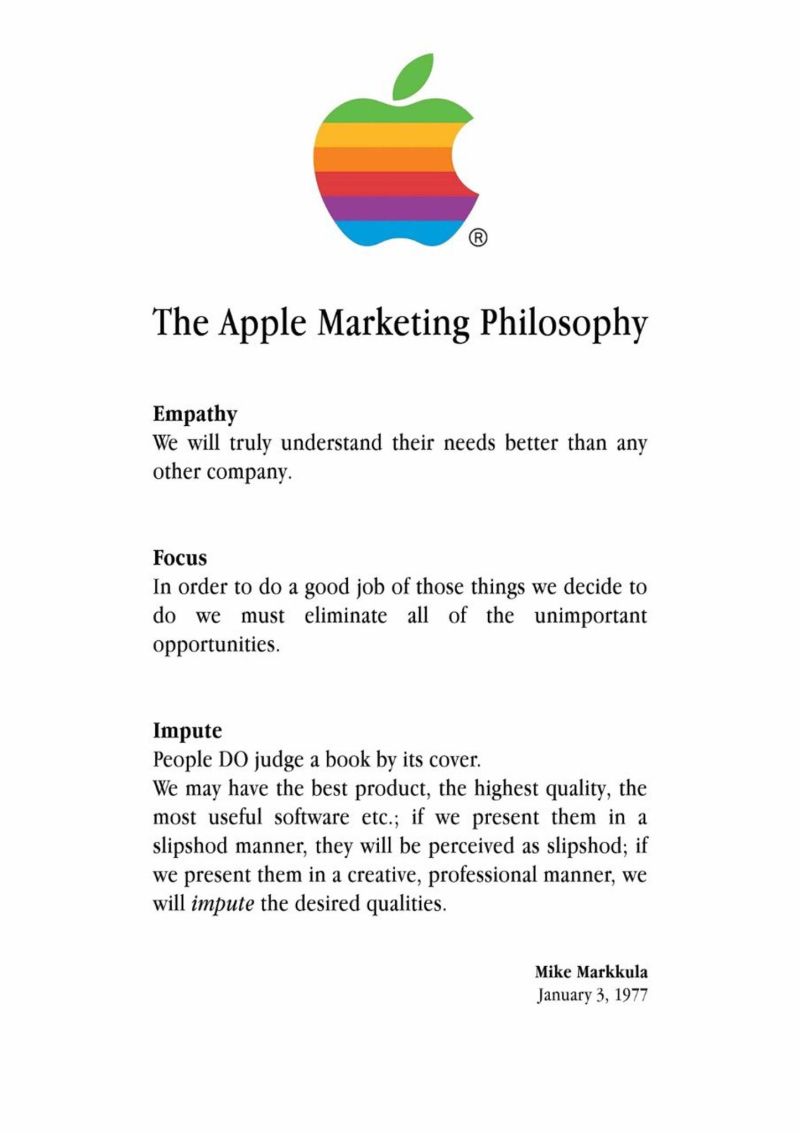The Enduring Principles of Apple‘s Marketing Philosophy.
In today’s world, marketing has become a lead gen operation rather than true product marketing and *demand generation*. Here is Apple’s guide that can help us to get back to product marketing roots.
In 1977, Apple co-founder Mike Markkula penned a memo that has since become a testament to the company’s enduring success.
Today, this philosophy is not only a blueprint for product marketing but also an excellent guide for innovative leaders and entrepreneurs.
Empathy, Focus, and Impute – these were the foundational principles that Markkula believed would set Apple apart. It’s a reflection of understanding customer needs, prioritizing what matters, and presenting products with the professionalism they deserve.
1. Empathy: Know your users. Dive deep into their needs, wants, and pain points. Only then can you truly serve and solve.
2. Focus: Clarity is key. Eliminate the noise and concentrate on the core. It’s about doing a few things exceptionally well, not many things adequately.
3. Impute: Perception shapes reality. The presentation of your product sets the expectations of its quality. Excellence in design begets the assumption of excellence in performance.
Whether you’re launching a startup or leading a team within a large corporation, ask yourself: Are you empathetic to customer needs? Are you focused on what truly matters? And does your product impute the quality you strive for?
What are your thought’s on Apple’s timeless product marketing philosophy?
#Apple #MarketingStrategy #productmarketing #ThrowbackThursday

